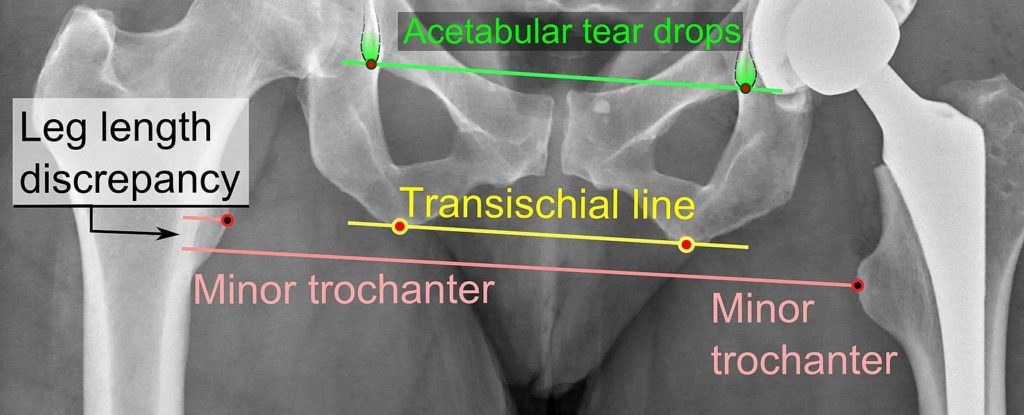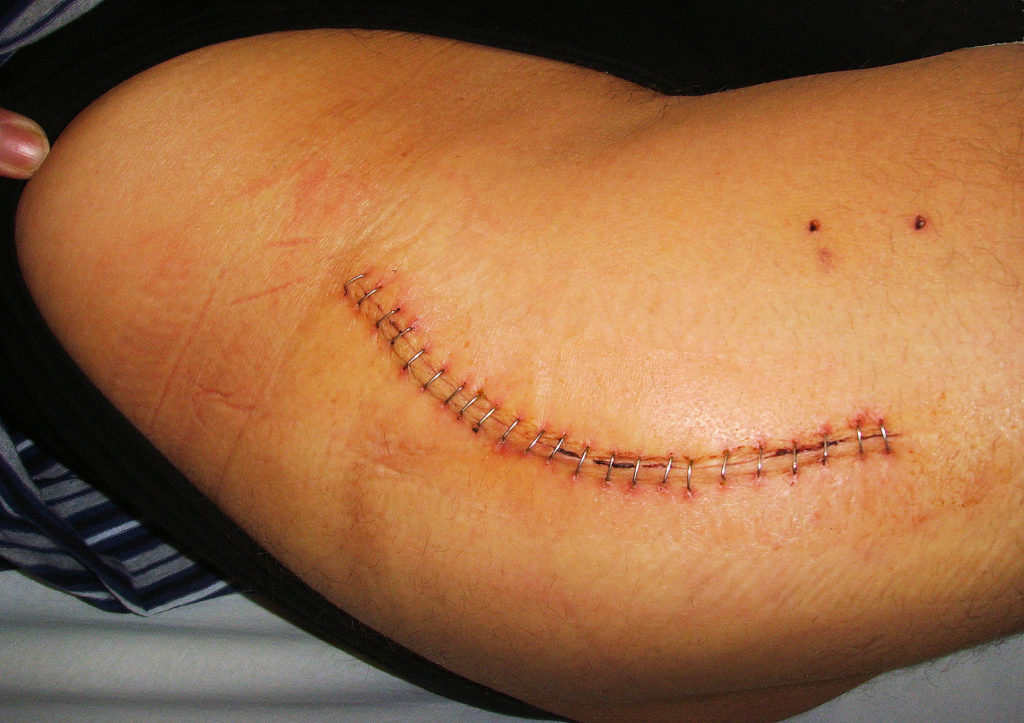Hip replacements have tripled in number in the U.S. from just 20 years ago. With 450,000 hip replacement surgeries carried out in 2020, the number of people affected by medical malpractice is higher than ever.
Most of the Americans who undergo hip replacement surgery do so in hopes that the procedure will restore their lost mobility. But when medical malpractice rears its head, these surgeries can change from an aid to a source of more pain.
Hip replacements are normally a safe and effective surgery. But when they go wrong, you deserve more than an orthopedic shoe to even out your walk. Contact the medical malpractice lawyers at Thistle Law today to start planning your case.

Source: Wikipedia, shared under a CC0 license
What Causes Leg Length Discrepancies?
A leg length discrepancy is typically diagnosed when the legs have one inch or greater difference in lengths.
If one of your legs has ended up longer than the other after a hip replacement surgery, there are two causes which are overwhelmingly likely. Both are the result of medical malpractice:
- An incorrectly sized hip replacement has been implanted
- The positioning and angle of the prosthetic implant is off
Signs and Complications of a Leg Length Discrepancy
Discovering a leg length discrepancy after hip replacement surgery can be a surprising and disorienting experience. And it’s also one of the most common avoidable outcomes of the surgery.
In such cases, the operated leg will often end up longer than the other. If this problem isn’t corrected, it could lead to more serious, chronic problems down the road. These may include:
- Arthritis
- Knee problems
- Need for additional surgeries in the future
- Permanent limp
- Pressure on the back
- Scoliosis
- Severe pain
- Vaulting, uneven walk
What Are the Recommended Solutions to Leg Length Discrepancies?
Compounding the damage of a botched surgery are half measures that doctors, hospitals and insurers may try to push onto their patients.
Shoe lifts are effective in the more minor cases, but they may also be a way of avoiding payment for a more expensive surgery. There may also be a legal motive to avoiding such a prescription — fixing a hip replacement is riskier and more complicated than the original surgery.
Hip revision surgery is another option. Although this surgery is costly and may result in additional complications, the effects of ignoring the problem may lead to issues walking and hip and knee pain. The unbalanced gait of an uncorrected leg length discrepancy can also put pressure on the nerves in the lumbar spine, and may lead to low back and leg pain due to a pinching of those nerves.
Why Does Medical Malpractice Happen?
There are predictable reasons for medical malpractice in hip replacement surgery. Many are due to the following avoidable elements:
- Fatigue: Our healthcare system is overtaxed — and the fatigue that comes standard with this state can have devastating consequences for patients.
- Inadequate training: Sometimes healthcare professionals are put into situations for which they’re not adequately prepared.
- Intoxication: Some healthcare workers turn to drugs and alcohol to cope with the stress they face. These dependencies can easily affect their on-the-clock life.
- Neglect: Many medical errors are the result of neglect. This can include pre-op considerations and a lack of observance of the proper standard of care.
- Poor communication between different doctors and departments: A failure to communicate effectively often results in costly errors.

Source: Wikipedia, share under a CC BY-SA 3.0 license
When to Consult with an Experienced Malpractice Attorney
Most medical errors are avoidable. When malpractice occurs in a hip replacement surgery, it can greatly impact an individual’s future health, potential for injury and quality of life.
The best course of action if you feel that malpractice has caused harm to you or a loved one is to consult with skilled attorneys like those at McEldrew Young Purtell Merritt as soon as possible. With 30 years of experience in medical malpractice, our law firm can quickly evaluate the situation and help determine if the injury suffered involved acts of medical negligence or professional malpractice.
To schedule a meeting for a free consultation, fill out our form or call us directly at 1-800-590-4116.

